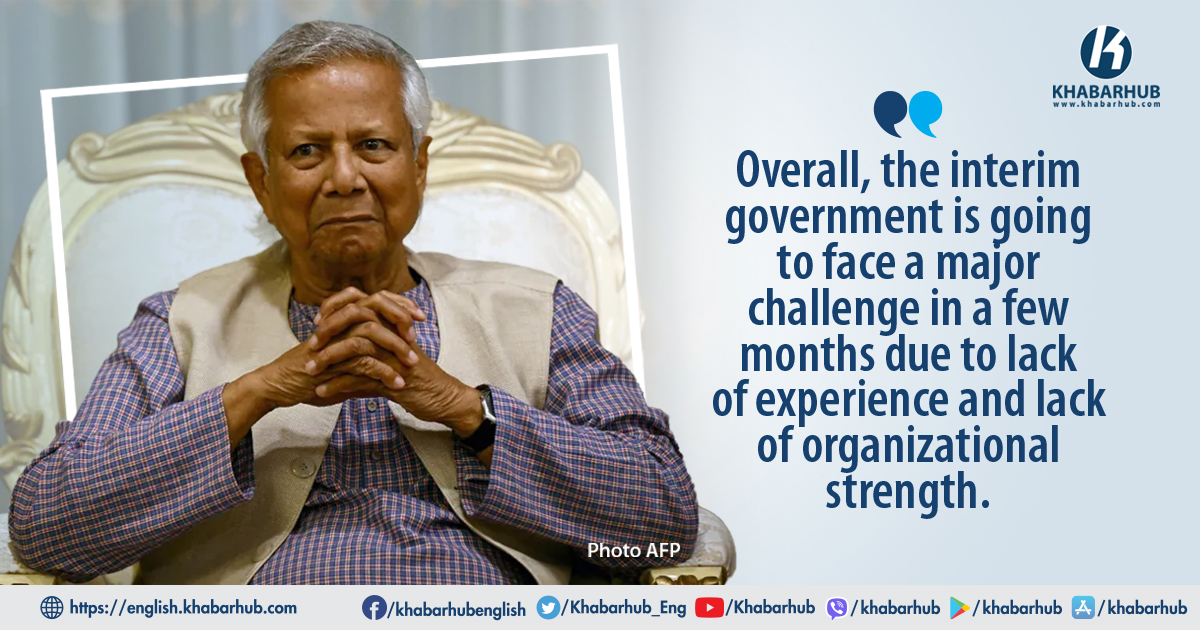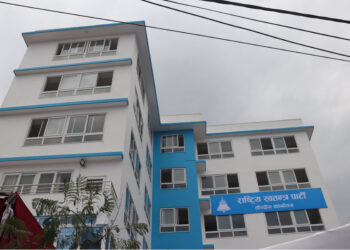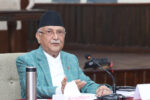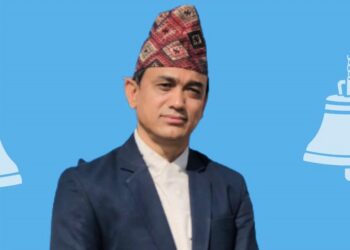Student politics can take a leading role in toppling the government of any country.
Bangladesh is a perfect example of this. However, it is difficult to find any evidence in the pages of history that such student movement was successful in running the government.
There is also a huge gap between managing NGOs and governing a country.
Political experience and organizational skills are very important in any democratic set up of a country.
In case of Bangladesh, the lack of experience of the interim government is evident from the beginning.
The accumulated anger of the people against the Awami League does not make it difficult for them to get appreciation for the time being.
But there are big challenges ahead for Nobel laureate Professor Muhammad Yunus and his interim government.
The lack of experience is evident in the interim government as it has to change the portfolio of office of advisers within nine days of the formation of the government.
At the same time, there is constant pressure from the military and other political forces, including BNP-Jamaat. Now it would be interesting to see how much pressure they can digest and keep the people calm.
Within nine days of forming the government, Dr. Yunus was forced to change the portfolio of one of the ministry.
Brigadier General (retd) M Sakhawat Hossain has been removed from the Home Ministry.
He is known as a very talented person in Bangladesh. Although he is a military officer, he is also known as an intellectual or writer.
He also served as the Election Commissioner of Bangladesh.
But recently, BNP and Jamaat took to the streets against him for his comments on Durga Puja holidays and Awami League’s right to engage in politics.
So within nine days, he was forced to take new responsibility of ministry of textile and jute development.
The change in the Appellate Division of the Supreme Court, starting with the Chief Justice, under pressure from the students and the army, has also made the judicial system unstable.
Former Bangladesh Rifles director general Lt Gen (retd) Jahangir Alam Chowdhury has replaced him as the home adviser.
Chowdhury has also given additional responsibility of looking after important ministries like agriculture.
The responsibility of student leader Nahid Islam was increased. He was given the post of Posts, Telecommunications and Information Technology and the Ministry of Information and Broadcasting from August 16.
Another student leader, Asif Mahmud Sajib Bhuiyan, was given the responsibility of labor and employment with the Ministry of Youth and Sports.
Both of them are students of Dhaka University and they are holding the rank of minister in the interim government.
There’s nothing wrong with that, of course. If students are involved in politics, they can also become ministers. Military officials can also run the country.
There is no such condition that people associated with an NGO cannot be a minister.
But political experience is very important in running the state. It requires one-to-one communication with the masses.
This is not possible without viable political infrastructure. Only organized political forces can lead a successful government.
It has been evident from the very beginning that it would be very difficult to run the government on the basis of military power, keeping the organized political power out of the ambit of politics.
In Bangladesh, it has been seen in the past, bad or good, no one other than the BNP, Awami League and to some extent the Jatiya Party has been able to stabilize the country.
The question of whether state reform is possible without a democratic process is also being raised.
Since Sheikh Hasina’s departure from the Prime Ministership, the impression of uncertainty has been evident in Bangladesh.
The interim government may find it difficult to withstand this pressure. Students are participating in the government.
Many are happy with their participation in running the state. But among the unorganized student community, there is already resentment over the nomination of ‘only’ two people for the post of advisor.
Many are eager to enjoy power from now on. But it can be a danger later. Now, however, people are not very keen to find fault with the interim government as they are still angry against corruption and arbitrariness under the Awami League rule.
Therefore, instead of questioning the legitimacy of the government, people are appreciating the students that are managing traffic or helping the administration.
But it is very difficult for the interim government to maintain this confidence of the people.
Because their power and time are very limited. Apart from the army, the pressure of other political forces starting from BNP-Jamaat has been visible from the very beginning.
People are also supportive to campaign against Awami League leaders and their associates through social media. Such publicity gives the Yunus administration more legitimacy.
The army, which has failed to resolve the unrest in Bangladesh, is now trying to follow public opinion to protect its own interests.
Questions are bound to be raised about the role of the army chief in allowing Sheikh Hasina to flee the country.
Along with the army, the police personnel are also completely disappointed due to negative public opinion.
Their lack of will power to restore law and order is visible. The situation is likely to get worse as many tainted terrorists are released from jail.
The change in the Appellate Division of the Supreme Court, starting with the Chief Justice, under pressure from the students and the army, has also made the judicial system unstable.
The army has taken the strategy of using the anti-discrimination student movement to corner the BNP. Although the students get importance in taking various decisions to run the state, BNP is being cornered day by day.
After the fall of the Awami League government, many in Bangladesh thought that the BNP would take power. But that didn’t happen.
Even the message of BNP’s acting chairman Tarique Rahman seemed that the party was ready to grab power.
In order to spoil that move, the army decided to use the students as a buffer.
The narrative of the students’ revolt to force Sheikh Hasina to flee the country created an image of universal public support for them.
Army officers try to create a transparent image of the students by allowing them to perform civic duties. Instead of elections, the idea of rebuilding the nation came to the fore. People are trusting students.
Therefore, all the anti-Awami League parties, including BNP and Jamaat, were forced to respect the sentiments of the people. Instead of elections, the army tactfully garnered the support of the people to reform the nation.
Even military officials are thinking of the strategy of holding elections without Awami League and BNP. People have bitter experience under the rule of these two parties.
To make use of this, the idea of a new political organization of intellectuals and professionals has also started in support of the students.
After a while, several decisions of the army backed interim government are bound to create dissatisfaction among the people.
This government, a puppet of the army, may fail to meet the expectations of the people within a short span of time. The real test of this government will begin at that time.
There is also the fear of a new conflict. Before the formation of the interim government, the BNP demanded that the election be held within three months.
The party’s acting chairman Tarique Rahman has gone a step further and demanded the announcement of the ‘election at the earliest’.
But they are constantly indicating that the interim government or the army is not seeking votes right now.
Since taking over office, the interim government has severely polarised all institutions, including the bureaucracy.
People are also supportive to campaign against Awami League leaders and their associates through social media. Such publicity gives the Yunus administration more legitimacy.
However, the lack of practical experience has not brought relief to the interim government despite the spontaneous support of the people.
This government, a puppet of the army, may fail to meet the expectations of the people within a short span of time. The real test of this government will begin at that time.
The BNP will strengthen its organization shortly and will rejuvenize its activists and supporters.
At the same time, other political forces will also be active in pulling the wind in their sails. All political forces will take to the streets against the interim government to spread their influence among the people.
So the situation may deteriorate after a few months. There are also fears of a resurgence of hartal and strike politics.
Overall, the interim government is going to face a major challenge in a few months due to lack of experience and lack of organizational strength.
Facing that challenge is a tough test for Dr. Yunus and his companions.









Comment